South Asian Martial Arts: Kalaripayattu
- Amir Hamza
- Jul 15, 2020
- 4 min read
Updated: Jul 31, 2020
Finally we head down to south India specifically the state Kerala. This place is known for being the birthplace for one of the oldest martial arts in the world. In recent year two bollywood stars have popularised the martial art in their films. This is the martial art known as Kalaripayattu.
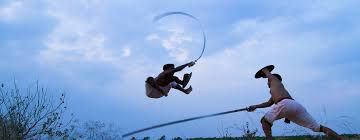
Martial Arts: Kalaripayattu
Style: Eclectic/Hybrid
Country: India
Origin: Kerala
History: This ancient Indian martial art started in what is known as modern day Kerala, South India. The art is believed to have existed as far back as the 3rd century BCE and considered potentially the oldest martial art to have survived to modern day. The earliest sources to such martial arts exist in the Sangam literature. Historically, all Keralites of the Hindu community Men and Women alike were expected to undergo a mandatory Kalaripayattu training starting from ages 7-9 until the end of their formal education. Those that enlist to the military would continue their training into adulthood as part of their service.
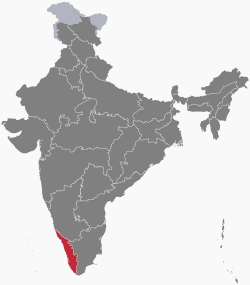
Culture: The practice of Kalaripayattu had diminished during the colonial times but is currently being revised in modern day. There are typically two main style of Kalaripayattu. Northern Style and Southern Style. Northern Style is usually referred to as Vadakkan Kalari and considered the "original form". Vadakkan Kalari place more emphasis on physical flexibility and strength training similar to Hatha Yoga practices. Pattern or forms called Meypayattu are also taught in a similar manner to kata in karate or tuls in taekwondo. After the student learns meypayattu, stick fighting is taught. Generally, Kalaris start training with weapons within 3 to 6 months. Some Kalaris only allow one weapon to be learned per year. After training in stick fighting, iron weapons are introduced. Training begins with the dagger, sword and then the spear. Not all modern schools use specialized weapons. Traditionally, bows and arrows were commonly used in Kerala and students were trained in these techniques, but is rarely taught today. Southern Style is referred to as Thekkan Kalari and was said to have been altered and influence by Sage Agastya. This style essentially adopted more Tamil martial arts influence compared to the northern counterpart. Unarmed Techniques from Adi Murai and stick fighting techniques of Silambam was adopted into the Thekkan Kalari variation. Other sources believe elements of martial arts techniques from Varma Kalai (pressure point style) and Adi Thada (kickboxing) were added too.
Warrior: Kalari warriors are generally known to where little to no armour when training, traditionally men would be shirtless with only a pair of white shorts and a coloured belt. Female practitioners like Jasmine Simhalan who trained in Kalaripayattu were expected to be modestly dressed unlike men and were generally covered with only their forearms and shins being the exposed areas. During Medieval period, Kalari favoured light weight armour to prevent restricting their movements or flexibility or agility. Whilst this also meant less taxing on their stamina too. It left them vulnerable compared to some heavier armoured warriors as well as the introduction of firearms meant that armour was necessity.
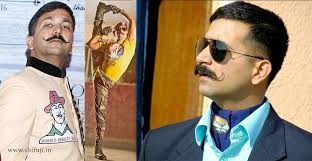
Media/Potential: Currently Kalaripayattu has had surges of interest throughout the years. It is believed Buddhist monk Bodhidharma had passed on Kalaripayattu, Varmai Kalai, Siddha Medicine, Massage and Buddhist culture to China specifically the Shaolin Monasteries in which inspired the additional techniques and practices seen in modern Shaolin Kung-Fu, Chinese Acupuncture as well as China's religion. Currently the biggest faces of Kalaripayattu include Shifuji Shaurya Bhardwaj, an Indian soldier and martial artist who in turn trained Bollywood actor and Taekwondo Black belt Tiger Shroff in a modernised style for the Baaghi film series. Shifuji even starred in the series starting off as Tiger's mentor in the film and the Villains father, played by former badminton star Sudheer Babu who now trains in the style regularly. The current Bollywood star for Kalaripayattu is undoubtedly Vidyut Jamwal who is born to a soldier father and Kalari teacher mother and started his Kalari training since he was 4 years old. He is best known for the Commando series in Bollywood films and has worked with Street Fighter star Christian Howard on Force where Christian Howard mentioned in an interview with Kung-Fu Kingdom that he wished to do a UK-Indian buddy cop film with Vidyut Jamwal. In terms of fighting games Dhalsim was intended to be Kalari fighter (hence his origins being from Kerala) but Capcom gave him stereotypical Fakir powers based off the Hindu assassin from the Chinese film Master of the Flying Guillotine and took the Breath of Fire practice in Yoga too literally. This Breath of Fire technique was also applied to Avatar as a base of a firebenders training. Whilst Dhalsim is far from accurate for Kalari fighter, there was a rumoured character of the named Zen that was almost put into the games. Much like Vidyut and Tiger, Zen is a Bollywood actor with charisma and is master dancer and Kalari. While Zen wasn't made into a playable character the concept was popular enough for a profile on Capcom's Website.

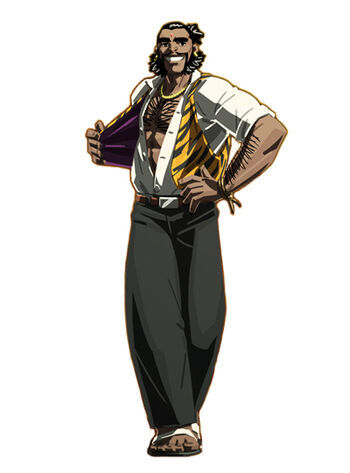
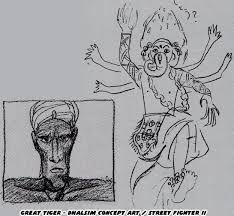



Comments